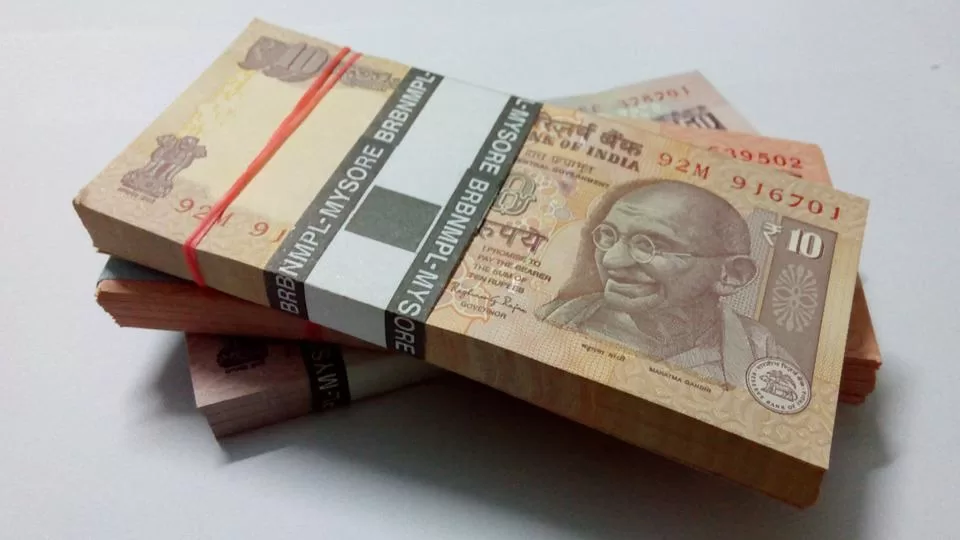The world took one step closer to a cashless society this past November. India’s Prime Minister, Narendra Modi, made the announcement that India would be doing away with its 500 and 1000 rupee notes.
For those who don’t consider this move an attack on cash, consider one of the other measures of the reform. In addition to phasing out the 500 and 1000 rupee notes, the government also capped the amount of cash that citizens can withdraw from their bank accounts. The picture seems to be coming together now…
Modi claimed the move was executed to curb the massive corruption plaguing India. These motives are certainly admirable; however, as we have all come to expect from politicians, their stated motives and their actual motives are often two totally different things.
Low Rate of Income Tax
True enough, India has a problem with low rates of income tax reporting. In 2016, for example, only 37 million Indians filed tax returns. And of those 37 million, 10 million were found to be exempt, meaning that only 27 million Indians actually paid income taxes in 2016. That’s less than 2% of the country.
No doubt, the ability to greatly increase the country’s taxing potential is a major motivator for Mr. Modi’s administration. An estimated 50% of the Indian economy exists in the “informal” sector. These workers, of course, aren’t paying income tax on their wages. Wages which, for millions of Indians were never subject to income taxes, may now be subject to taxation. This could be potentially devastating for millions of Indian workers who already find it hard to make ends meet. Now, these people’s wages will face the prospect of being taxed. The old tried-and-true political narrative of taxes being used to help the poor seems to make little sense when politicians are taking money from the very people who need it most.
While tax evasion is a problem, is the elimination of cash really the solution? What’s more, when we examine the issue of tax evasion further, we find that cash is the least of the inhibitors of it.
In fact, more than 90% of India’s “black money,” or untaxed wealth, is held in non-cash form. Gold, real estate, foreign accounts; these are the forms that “black money” takes in India. Almost none of it is in cash. Therefore, eliminating the 500 and 1000 rupee notes will only fix a very small percentage of the problem.
Eliminating Some Rupee Notes
Despite the fact that eliminating the 500 and 1000 rupee notes in India will have little impact on corruption and tax evasion, politicians there are still calling it a win. Take this beautifully deceptive quote from economist Partha Mukhopadhyay, “And as long as you can keep [people] believing that [removing big notes fights corruption, crime, and tax evasion], whether it’s true or not, you might have picked up very substantial brownie points.” Ah yes, the wonderfully manipulative logic of the opponents of cash and privacy: tell the people a lie, and as long as they believe it, everything will work out okay.
While a reduction in corruption would certainly be a welcome change, one that would undoubtedly strengthen India’s markets and institutions, a largely cashless society comes with many, many drawbacks. A few of these include a massive reduction in privacy, as well as further power over private lives being handed to the government.
As cash is phased out in India, it will be replaced by electronic banking. With the large scale reduction of cash in India, the vast majority of transactions will become electronic. Electronic transactions, of course, are completely recordable, trackable, and, not to be overlooked, taxable. This is a key feature of the move to a cashless society in India, and one that should not be understated.
It is certainly worth taking a moment to pause and consider the level of invasiveness this move away from cash will give the Indian government over its people. It truly is an autocrat’s dream. Soon, the Indian government will be able to monitor the majority of transactions within India. Even something as simple as a father giving his son $5 for “spending money” will be on record, and within the Indian government’s power to monitor and take note of. This is a clear affront to privacy.
What’s even more frightening is the power this gives governments over people’s lives. Imagine that an individual says something a government official doesn’t like; how hard would it be for the government to block this dissenter’s access to his own money? With absolutely no cash, this would render him powerless to perform even basic functions of his life, such as paying rent or purchasing groceries.
Such an action would leave little to no recourse on the individual’s part. Sure, maybe he could take the government to court, but the legal proceedings could take months or even years. And how would he pay a lawyer while being blocked from his accounts? The whole situation is rife with corruption and authoritarianism, and one we should approach cautiously.
Not Living In India?
But what does all of this mean for people not living in India? What does this mean for the American, the Frenchman, or the Canadian reading this article? Well, quite a lot, actually.
If India is successful in reducing cash transactions, this could spill over into other anti-cash movements. We can already see instances of cash being phased out in many other major nations across the globe. In Sweden, where cash transactions dropped by 40% since 2009, there is serious talk of eliminating cash altogether. In France, it is illegal to use cash for any purchase above €1,000. And Denmark is hoping that “cash will be obsolete” by 2030, a mere 13 years from now.
One way to protect against such an insidious society would be to open a bank account in a foreign country. This spreads one’s assets between several legal jurisdictions, allowing for greater protection against corrupt government attacks on privacy and prosperity. It’s not a complete solution, but it’s a start.
An individual with one, or even several offshore accounts, will enjoy much greater protection against government harassment than an individual with all of their assets stuck in a single country.
As the cashless movements grow in strength, our personal privacy dwindles. Be proactive and take action to guard against this potential threat before it’s too late.
Contact Author
"*" indicates required fields
Stay Ahead on Every Adventure!
Stay updated with the World News on Escape Artist. Get all the travel news, international destinations, expat living, moving abroad, Lifestyle Tips, and digital nomad opportunities. Your next journey starts here—don’t miss a moment! Subscribe Now!










